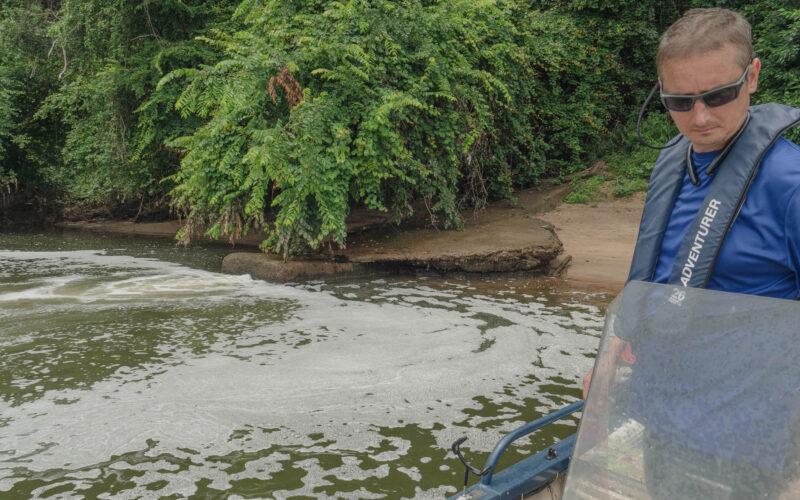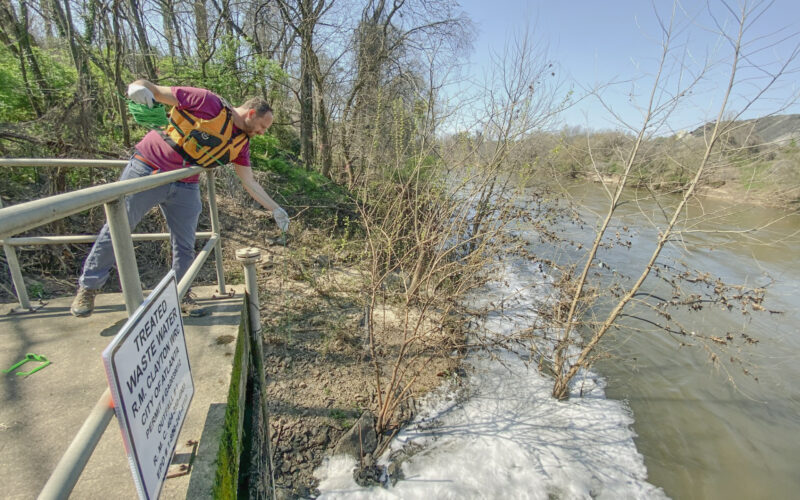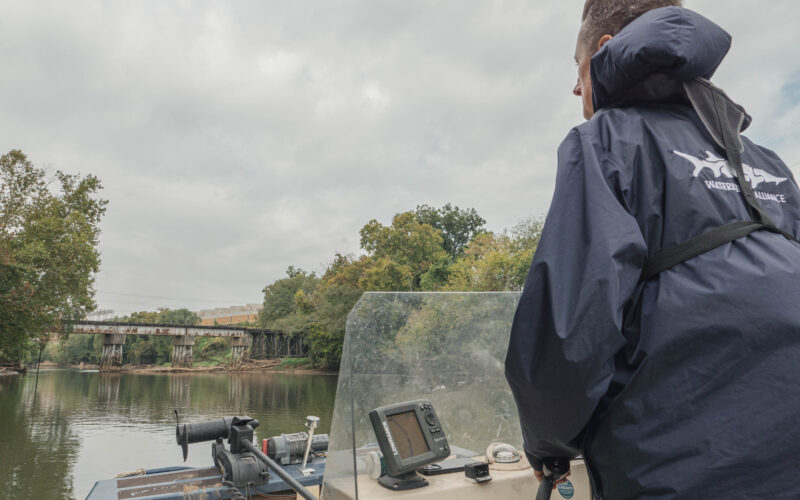When people talk about climate change signals in Georgia, they tend to focus on destructive coastal flooding, damaging hurricanes, agricultural impacts, and the serious implications of heat on public health.
But what does a changing climate hold in store for the 430-mile-long Chattahoochee River and the more than five million people who depend on it?
Because climate change is driven by the burning of fossil fuels and generation of greenhouse gases, most of the conversations about how to stop it center on energy production and consumption: we must transition to renewable generation like solar and wind, and stop burning non-renewable fossil fuels like coal, natural gas, and petroleum products.
Public water utilities – as energy consumers – have a significant role to play and are vulnerable to climate change. Chattahoochee Riverkeeper’s new report, Water Utilities: On the Front-Line Fighting Climate Change, addresses the less-often understood or discussed role public water utilities will play in the climate emergency.
Until recently, climate change conversations involving water utilities have typically focused on fixing chronic urban flooding by adapting green infrastructure in parks or streets. But the truth is that water utilities use a tremendous amount of energy to provide homes and businesses with clean drinking water, to treat that water after it is used, and to send it back to our waterways. Public water utilities can – and must – reduce their carbon footprints.
In the context of responding to climate change, mitigation means reducing the production or generation of carbon dioxide – for example, by installing solar panels for a renewable source of energy. Adaptation means adapting to the conditions we deal with day-to-day – like by building green infrastructure to reduce urban flooding. Adopting both approaches helps make communities, and the resources communities depend upon, more sustainable and resilient.
In the Chattahoochee River basin, the City of Atlanta is the only local government that has developed a comprehensive clean energy plan with clear goals to reduce the city’s public water utility carbon footprint.
As the city’s second largest municipal energy consumer, the Department of Watershed Management (DWM) is a prime target for carbon burning reduction. DWM’s clean energy transition strategies include energy conservation, facility upgrades, and the development of new on-site energy generation. On-site projects include methane gas energy recovery systems at the R. M. Clayton and Utoy Creek wastewater treatment plants.
Additionally, in 2021 the city launched the Solar Atlanta Program, currently the largest municipal solar program in Georgia. To date, Solar Atlanta has outfitted nearly two-dozen facilities across the city with on-site solar. Of those, six DWM facilities – including the Chattahoochee and Hemphill drinking water treatment plants – will generate some electricity via on-site solar panels.
Read the report online to learn what other climate mitigation strategies local governments and water utilities can adopt to make the Chattahoochee River and its communities more resilient and sustainable.


